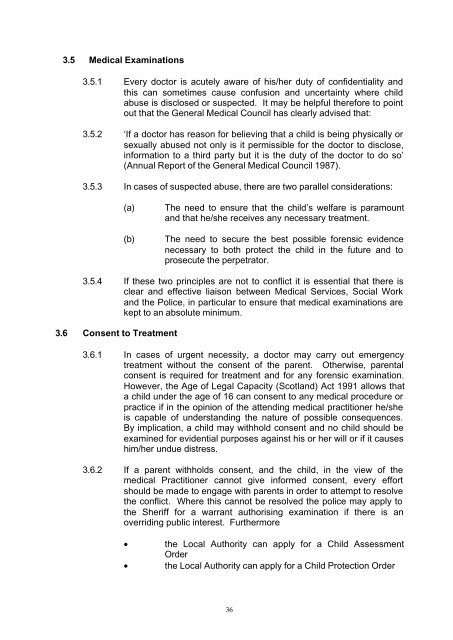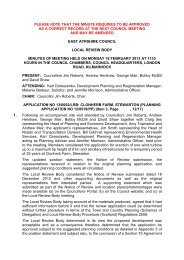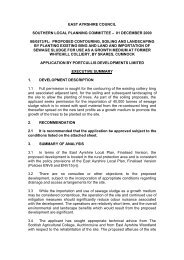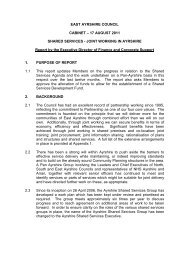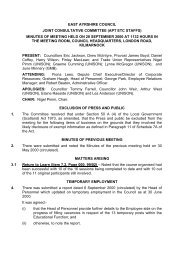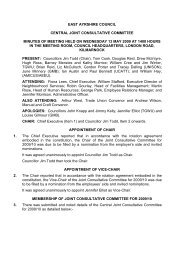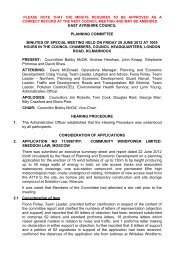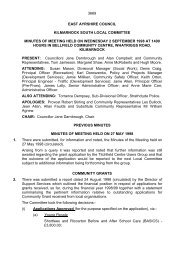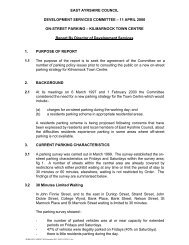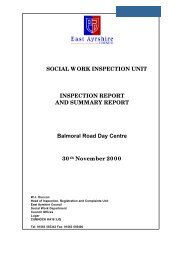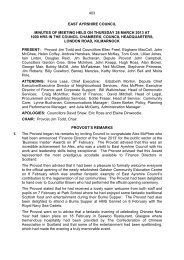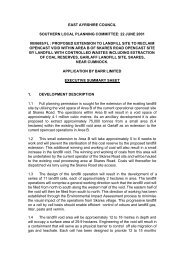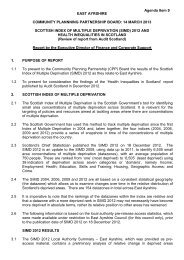Child Protection Procedures - East Ayrshire Council
Child Protection Procedures - East Ayrshire Council
Child Protection Procedures - East Ayrshire Council
You also want an ePaper? Increase the reach of your titles
YUMPU automatically turns print PDFs into web optimized ePapers that Google loves.
3.5 Medical Examinations<br />
3.5.1 Every doctor is acutely aware of his/her duty of confidentiality and<br />
this can sometimes cause confusion and uncertainty where child<br />
abuse is disclosed or suspected. It may be helpful therefore to point<br />
out that the General Medical <strong>Council</strong> has clearly advised that:<br />
3.5.2 ‘If a doctor has reason for believing that a child is being physically or<br />
sexually abused not only is it permissible for the doctor to disclose,<br />
information to a third party but it is the duty of the doctor to do so’<br />
(Annual Report of the General Medical <strong>Council</strong> 1987).<br />
3.5.3 In cases of suspected abuse, there are two parallel considerations:<br />
(a)<br />
(b)<br />
The need to ensure that the child’s welfare is paramount<br />
and that he/she receives any necessary treatment.<br />
The need to secure the best possible forensic evidence<br />
necessary to both protect the child in the future and to<br />
prosecute the perpetrator.<br />
3.5.4 If these two principles are not to conflict it is essential that there is<br />
clear and effective liaison between Medical Services, Social Work<br />
and the Police, in particular to ensure that medical examinations are<br />
kept to an absolute minimum.<br />
3.6 Consent to Treatment<br />
3.6.1 In cases of urgent necessity, a doctor may carry out emergency<br />
treatment without the consent of the parent. Otherwise, parental<br />
consent is required for treatment and for any forensic examination.<br />
However, the Age of Legal Capacity (Scotland) Act 1991 allows that<br />
a child under the age of 16 can consent to any medical procedure or<br />
practice if in the opinion of the attending medical practitioner he/she<br />
is capable of understanding the nature of possible consequences.<br />
By implication, a child may withhold consent and no child should be<br />
examined for evidential purposes against his or her will or if it causes<br />
him/her undue distress.<br />
3.6.2 If a parent withholds consent, and the child, in the view of the<br />
medical Practitioner cannot give informed consent, every effort<br />
should be made to engage with parents in order to attempt to resolve<br />
the conflict. Where this cannot be resolved the police may apply to<br />
the Sheriff for a warrant authorising examination if there is an<br />
overriding public interest. Furthermore<br />
• the Local Authority can apply for a <strong>Child</strong> Assessment<br />
Order<br />
• the Local Authority can apply for a <strong>Child</strong> <strong>Protection</strong> Order<br />
36


